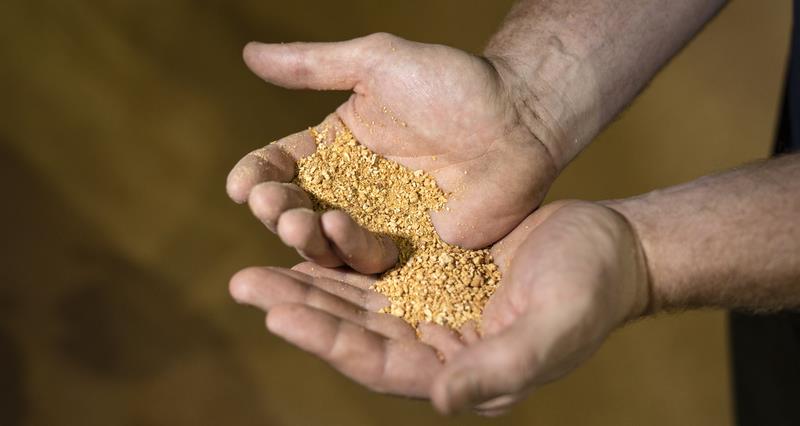Making soya sustainable
The UK feed industry uses around 2.4 million tonnes of soya bean meal every year, with the majority coming from South America (Brazil, Argentina and Paraguay), and the remaining volumes being sourced from North America and Europe.
Commodities such as soya, beef, palm oil and timber are drivers for deforestation and conversion of land, which accounts for 13% of the world’s greenhouse gas emissions and protecting forests is critical to halt the loss of biodiversity.
Sourcing of UK animal feed
The UK Soya Manifesto estimates that around 68% of animal feed is either physically deforestation and conversion free (sourced from a low-risk country or produced under the Amazon Soy Moratorium) or covered by a sustainability standard or certified through credits.
Understanding soya supply chains
�ʼһ���is a supporter of the . This is a collective industry commitment to work together to ensure all physical shipments of soya to the UK are deforestation and conversion free by 2025.
Signatories to the manifesto include actors from across the supply chain including retailers, hospitality, processors, feed companies, shippers and industry bodies.
Government action on soya and illegal deforestation
The Environment Bill introduced a new law making it illegal for ‘larger businesses’ to use ‘forest risk’ commodities (including soya) that have not been produced to the relevant local laws. The new law requires businesses to demonstrate, through due diligence records, they have taken proportionate action to comply.
Businesses will be required to undertake a due diligence exercise on their supply chains and to report on this exercise annually for transparency.
At the COP 28 summit, Defra Secretary of State Steve Barclay announced that secondary regulation to operationalise the provisions in the Environment Act will be laid when parliamentary time allows.
EU regulations
On 29 June 2023, the EU Deforestation Regulation on deforestation-free products came into force. The main driver of these processes is the expansion of agricultural land that is linked to the production of commodities like soy, beef, palm oil, wood, cocoa, coffee and rubber.
Under the regulation, any operator or trader who places these commodities on the EU market, or exports from it, must be able to prove that the products do not originate from recently deforested land or have contributed to forest degradation.
As of 29 June 2023, operators and traders had 18 months to implement the new rules.
Ensuring purchased soya is sustainable in UK supply chains
Soya credits
The credits model allows the soya farmer the incentive to grow soya to a sustainable standard without the complication and cost of segregating soy through the supply chain.
The farmer gains a ‘credit’ for every tonne of certified soya produced. The credit can then be purchased by a food business.
This has been the first step in many food businesses’ plan to move towards sustainable soya supply chains. There is no physical link between the purchase of the credit and the flow of certified material.
Mass balance
This is where certified soya is mixed with non-certified soya at a processing plant. Accounting systems ensure that delivered volumes of certified soya match those volumes entering the unit.
Physically segregated supply chains
The industry wants to move towards all physical shipments of soya being verified deforestation and conversion free.
Challenges of moving towards physically-segregated supplies of soya
The UK’s soya demand is very small compared to the rest of the world and it only represents 1% of global soya consumption, so shipping and logistics issues are difficult to change for such a small supply.
The EU will require physically-segregated supplies of soya from December 2024 and there may be opportunities for the UK to access EU Deforestation Regulation compliant soya that is being supplied into Europe. There are still unanswered questions on when this soya will be available and how much it will cost.
�ʼһ���is a supporter of the UK Soy Manifesto and its commitment to deforestation and conversion free supplies of soya. We have concerns over the complexity of tracing soy through the supply chain and believe due diligence should be carried out at point of import. Any additional costs need to be recognised by the supply chain and we need to ensure that UK farmers are not at a competitive disadvantage to imports with embedded soy. �ʼһ���also supports further research into alternative proteins.


